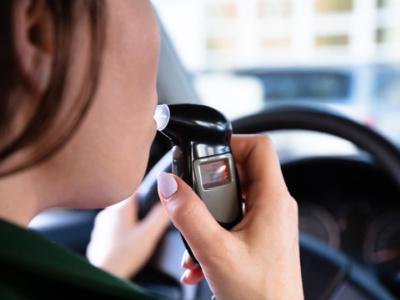Will Drunk Driving Detection Technology Be Required in Vehicles?
 Drunk and intoxicated driving is an ongoing concern in the United States. Public safety campaigns have alerted people to the dangers of drunk driving, and those who are arrested and charged with driving under the influence (DUI) may face serious penalties that can include large fines, loss of a driver’s license, and time in jail. Despite these measures, many people choose to drive while intoxicated, putting themselves and others at risk. In 2021, more than 13,000 people were killed in accidents involving alcohol impairment.
Drunk and intoxicated driving is an ongoing concern in the United States. Public safety campaigns have alerted people to the dangers of drunk driving, and those who are arrested and charged with driving under the influence (DUI) may face serious penalties that can include large fines, loss of a driver’s license, and time in jail. Despite these measures, many people choose to drive while intoxicated, putting themselves and others at risk. In 2021, more than 13,000 people were killed in accidents involving alcohol impairment.
To address concerns about drunk driving and other dangerous behaviors, the United States government is looking to put rules in place that may require vehicle manufacturers to include technology that will detect intoxication. However, many questions remain about what types of technology may be used, how it will be implemented, and whether it will actually provide the intended benefits.
Proposed Auto Safety Regulations
The Infrastructure Investment and Jobs Act, which was passed by Congress in 2021, required the National Highway Traffic Safety Administration (NHTSA) to put a new rule in place by November 15, 2024 that will require passenger vehicles manufactured after that date to be equipped with “advanced drunk and impaired driving prevention technology.” The NHTSA recently issued a proposed rule, and depending on input from automakers and other parties, it will take steps to put these requirements in place by November.
In the proposed rule, the NHTSA noted that there are several types of drunk driving prevention technology that may be considered. The specific types of technologies that may be mandated will depend on how effective they are at detecting intoxication and preventing drunk driving, how well they will improve motor vehicle safety, and whether they can be implemented in a reasonable manner and be used effectively by vehicle operators.
The technologies being considered by the NHTSA must work passively. Unlike ignition interlock devices that are required for some drivers who have been convicted of DUI, passive technologies will monitor drivers without requiring them to take actions such as providing a breath sample. These technologies may monitor a driver’s performance to determine whether there are any indications of impairment, or they may measure a driver’s blood alcohol concentration (BAC) to determine whether they are over the legal limit of .08 percent.
There are a number of questions about what types of technologies may be mandated and how they may work. Alcohol detection systems may include sensors on steering wheels, ignition switches, or gear shifts that measure a driver’s BAC. Breath alcohol detection systems may also be used, although these may be less practical, since they require drivers to breathe in the direction of a sensor, which would not be considered to be passive detection.
Multiple types of systems may be used to monitor drivers for inattention and impairment. These may include cameras that monitor the movements of a driver’s eyes and body, sensors that determine whether a person is keeping their hands on the steering wheel, and systems that monitor a driver’s speed, braking, and ability to stay in their lane.
While these technologies may help improve safety, many questions remain about how they will be implemented. Will they prevent a vehicle from starting if alcohol is detected? Will they automatically require a car to stop and pull over if a driver exhibits signs of impairment? Will factors other than alcohol use lead to false positives that may affect people’s ability to operate their vehicles? Can these systems be implemented practically, or will people refuse to use them because they cause more problems than they solve? Regulators will need to balance safety, convenience, and costs to determine what measures may be used to help prevent drunk driving.
Contact Our Hartford DUI Lawyer
While it remains to be seen what technological methods may be used to help improve safety on the roads in the United States, drunk driving will continue to be an issue that will be addressed by law enforcement. Drivers who are pulled over by police and arrested for intoxicated driving will need to understand the potential penalties they may face and the options for defending against DUI charges. At Woolf & Ross Law Firm, LLC, our Connecticut DUI defense attorney can provide legal representation in these situations, helping drivers determine the best defense strategies while protecting their rights. To learn how we can assist with DUI charges, contact us at 860-290-8690 and schedule a free consultation.






